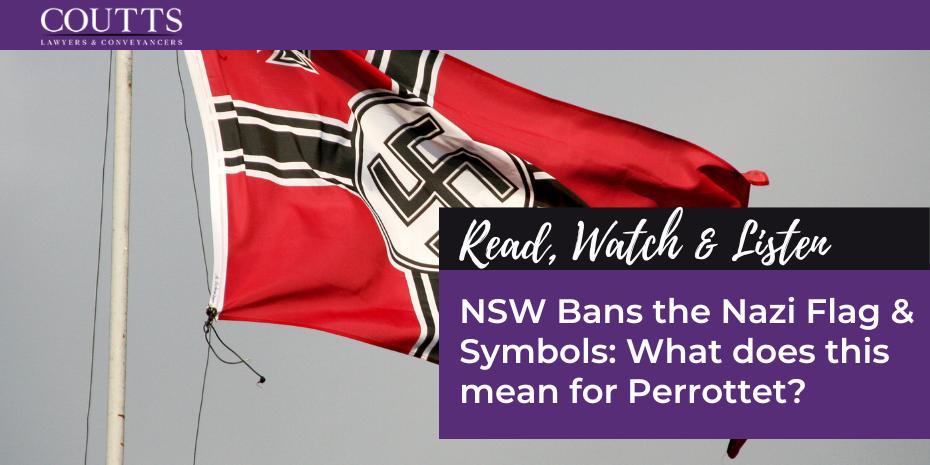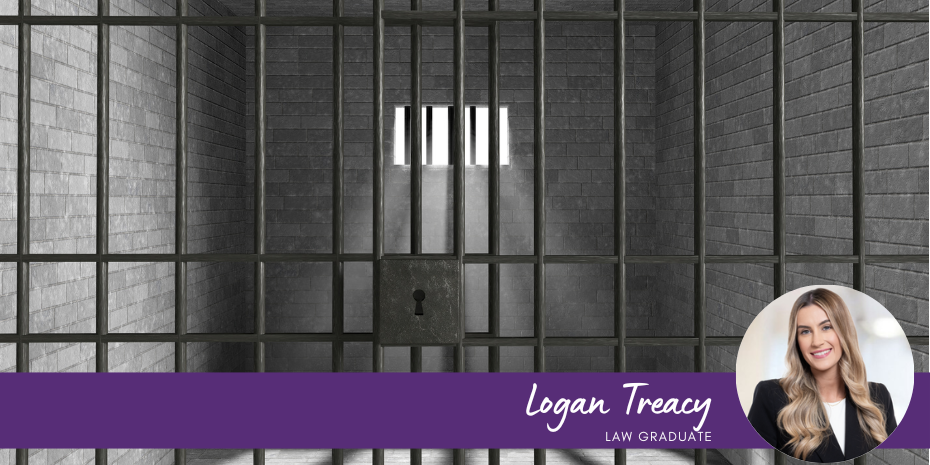Co-authored by: Isabel Strahan
KEY TAKE-OUTS:
- NSW has officially become the second state in Australia to ban the display of the Nazi flag following Victoria’s legislation in June 2022.
- The offence carries a maximum penalty of 12 months imprisonment and/or up to a $100,000 fine.
- There are numerous exceptions to the law which will ensure that the display of Nazi symbols in academia, for historical or educational purposes will not be prosecuted.
A new law has passed through Parliament making it a criminal offence to knowingly display Nazi flags or memorabilia that bears swastikas without a reasonable excuse. Someone found guilty of this offence may be sentenced to a maximum penalty of 12 months imprisonment and/or up to a $100,000 fine.
The Crimes Amendment (prohibition on display of Nazi symbols) Bill 2022 was unanimously passed in the upper house on Thursday 11th August 2022, which incorporated this offence into the Crimes Act 1900 (NSW).
The Bill was created after an inquiry recommended that the display of Nazi symbols be banned in a bid to tackle rising anti-Semitism. The Australian Security Intelligence Agency indicated that right-wing extremists encompass 40% of its counter terrorism workload. Therefore, the new offence is not only historically significant but relevant to the safety of Australians today.
The Attorney General Mark Speakman spoke as to the significance of this bill stating: “This new offence sends a clear message that the display of Nazi symbols, and the hatred and bigotry they represent will not, and should not, be tolerated”. He went on to say, “This new criminal offence will provide important, additional safeguards against hate speech and vilification in our State”.
A section of the Bill permits the display of Nazi symbols in academia for historical or educational purposes. The Minister of Multiculturalism Mark Coure also spoke about the protection that the new offence will afford to those who use the swastika for innocent religious and spiritual purposes including people that are Buddhist, Hindus, and Jains.
The law aims to protect the victims of the Holocaust and their descendants from the pain and trauma that is caused by the display of Nazi symbols. Nazi symbols can be deeply distressing for Holocaust survivors and their families, and this law aims to prevent them from being exposed to these symbols in public spaces.
However, this new law has sparked a lot of discussion in the community, with supporters of the Bill praising its implementation as a necessary step in tackling rising anti-Semitism and hate speech. Meanwhile, critics of the Bill argue that it criminalises the display of historical symbols and have indicated that it may be difficult to distinguish between educational displays and those that are intended to incite hatred.
Despite these criticisms, supporters of the bill argue that it is a necessary step in the fight against hate speech and anti-Semitism. They argue that Nazi symbols and memorabilia are not simply historical artefacts, but rather powerful symbols of hate and bigotry that have been used to incite violence and discrimination against Jewish people and other minority groups. They also argue that the bill does not restrict freedom of speech, as it only criminalises the display of Nazi symbols without a reasonable excuse. Ultimately, the passage of this bill marks a significant step forward in the fight against hate speech and anti-Semitism in Australia, and it is likely to have a positive impact on the community.
In recent news, New South Wales Premier Dominic Perrottet has been under heat for wearing a Nazi soldiers’ uniform at his 21st birthday party. Since the creation of this new offence, wearing a swastika for the purpose of a ‘fancy dress party’ would not amount to a reasonable excuse. Therefore, since the introduction of this new offence, this conduct would result in a criminal charge. However, it must be noted that the law is not retrospectively applied. Therefore, Mr Perrottet cannot be criminally charged for the mistakes of the past, and will only face the judgment of the NSW public at the State election.
In order for the Police to successfully prosecute this offence, they need to prove the following elements, beyond reasonable doubt:
- You knowingly displayed the Nazi flag or memorabilia,
- Without reasonable excuse.
The new law is a significant step towards combating anti-Semitism and hate speech within Australia. It is intended to protect the victims of the Holocaust, their descendants and the public.
If you or anyone you know has been charged with an offence under the new legislation, it is crucial to seek immediate independent legal counsel. Time is of the essence in these situations, as the earlier, you obtain legal representation, the better your chances are of obtaining a favourable outcome.
Our criminal defense lawyers have the experience and expertise to guide you through the legal process and protect your rights. Don’t hesitate, to call us now at 1300COUTTS to schedule a consultation and discuss your case.
ABOUT ISABEL STRAHAN:

Isabel joined the Coutts team in January 2022, as a Paralegal working within our Family & Criminal teams. She is currently studying a Bachelor of Laws and Bachelor of Arts, Majoring in International Relations and Minoring in Cultural Studies at the University of Wollongong. It is her dedication and hardworking nature that will see her go far within Coutts.
For further information please don’t hesitate to contact:
Isabel Strahan
Paralegal
info@couttslegal.com.au
1300 268 887
Contact Coutts today.
This blog is merely general and non-specific information on the subject matter and is not and should not be considered or relied on as legal advice. Coutts is not responsible for any cost, expense, loss or liability whatsoever to this blog, including all or any reliance on this blog or use or application of this blog by you.



